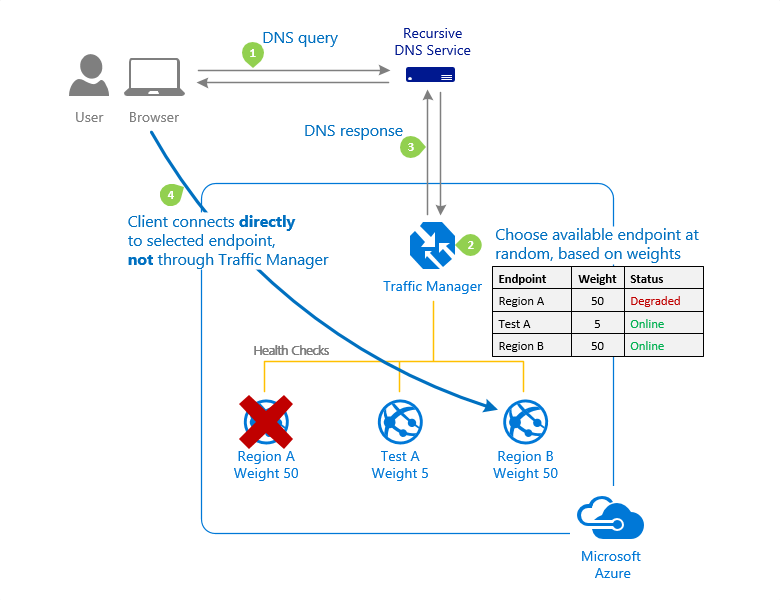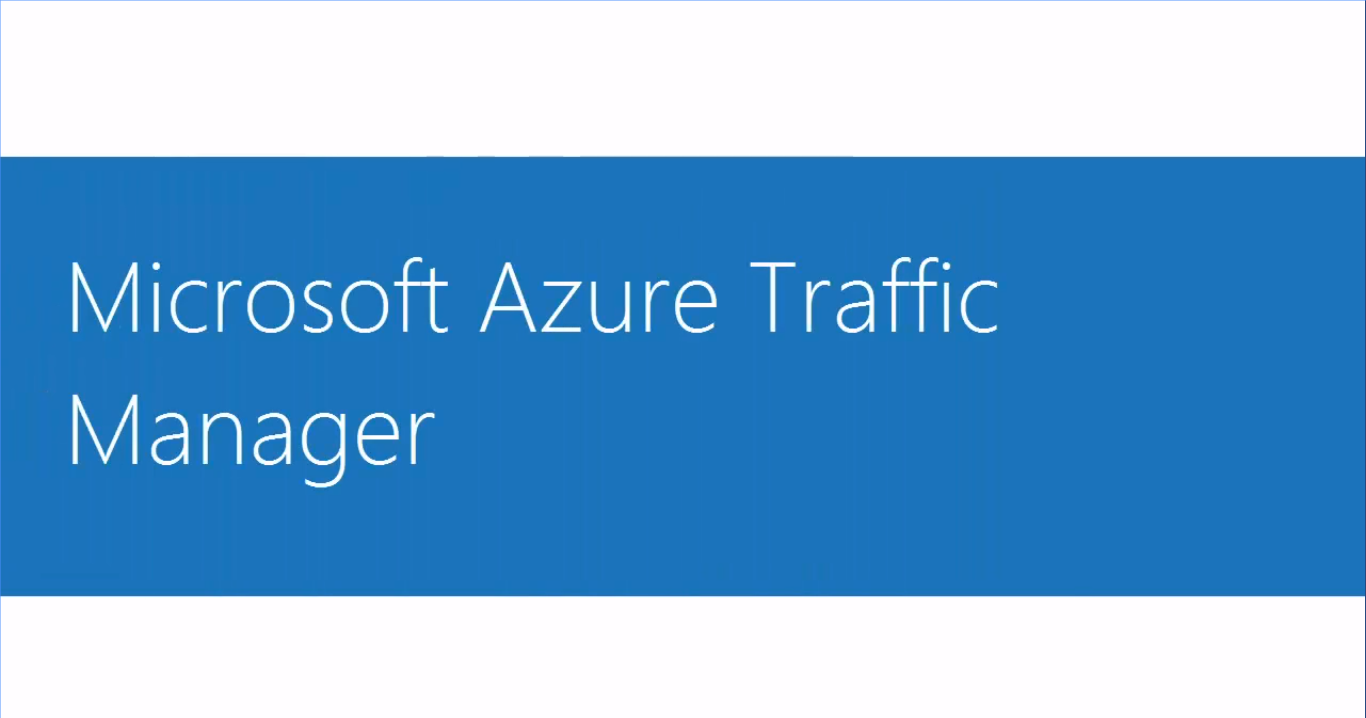Azure Traffic Manager is a load balancer that can be used to optimize traffic flow within Azure services. The Traffic manager operates at the DNS level, sending traffic in the direction specified in the routing policy set by the client.
The service offers several benefits including automatic endpoint failover which in turn reduces application downtime, increased application responsiveness, improves content delivery time, ability to combine on-premise and cloud systems, monitor traffic volume, identify traffic patterns and content localization to help meet regulatory requirements.
What types of traffic can be routed using Traffic Manager?
Traffic Manager endpoint can be any internet facing service hosted inside or outside of Azure. Hence, Traffic Manager can route traffic that originates from the public internet to a set of endpoints that are also internet facing. If you have endpoints that are inside a private network (for example, an internal version of Azure Load Balancer) or have users making DNS requests from such internal networks, then you cannot use Traffic Manager to route this traffic. – Azure
Azure Traffic manager uses six traffic-routing methods such as Priority, Weighted, Performance, Geographic, Multivalue, and Subnet. Customers can also nest Traffic Manager profiles to combine the benefits of multiple traffic-routing methods.
-
Performance Routing: Useful when there is a primary service endpoint for all traffic.
-
Weighted: To distribute traffic across multiple endpoints, either evenly or based on pre-defined weights
-
Performance: Reduce latency by directing traffic to the closest endpoint.
-
Geographic: Direct users to a specific set of endpoints based on the geographic origin of DNS query
-
Multivalue: Usable only with IPv4/IPv6 addresses as endpoints. This method allows the user to get multiple healthy endpoints in a single DNS query.
-
Subnet: To map sets of end-user IP address ranges to a specific endpoint within the profile

Geographic traffic-routing method
Performance traffic-routing method
Priority traffic-routing method
Weighted traffic-routing method
Azure Traffic Manager Pricing
The pricing depends on the number of – DNS queries received, monitored endpoints, user measurements received by the service and the data points used to create traffic view outputs. Azure offers discounts for services that receive more than a billion queries a month
Pricing for DNS queries and health checks remain the same for all traffic routing methods.
| First 1 billion DNS queries/month | $0.54 per million queries |
| Over 1 billion DNS queries/month | $0.375 per million queries |
| Basic health checks (Azure) | $0.36 per Azure endpoint/month |
| Fast interval health checks add-on (Azure) | $1 per Azure endpoint/month |
| Basic health checks (external) | $0.54 per external endpoint/month |
| Fast interval health checks add-on (external) | $2 per external endpoint/month |
| Measuring Azure Regions | $2 per million measurements |
| Data points processed | $2 per million data points processed |
SLA
Azure guarantees that DNS queries “will receive a valid response from at least one of Azure Traffic Manager name server clusters at least 99.99 percent of the time.”


